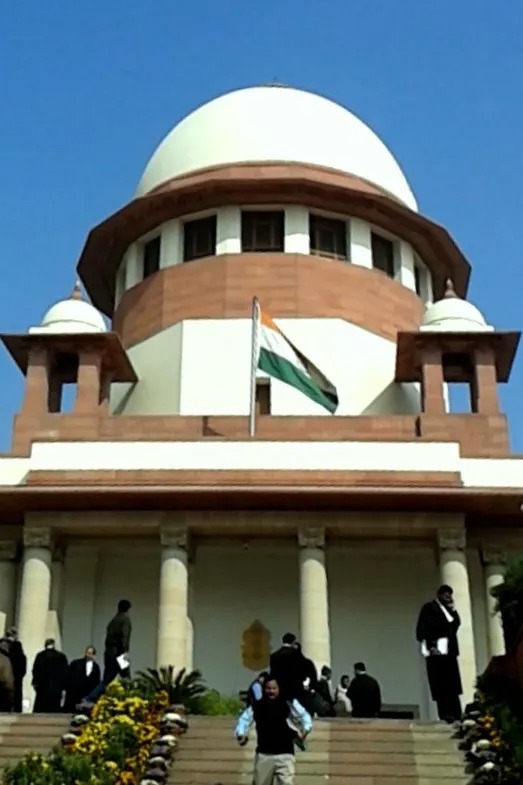A.K. Pathak, J.@mdashAggrieved by the award dated 29th October, 2011 passed by the Labour Court No. XIX, Delhi petitioner - workman has preferred this writ petition under Article 226 of the Constitution of India. Industrial Adjudicator has answered the reference against the petitioner. Industrial dispute raised by the petitioner was referred by the Secretary (Labour) to Labour Court for adjudication in the following terms:-
Whether Sh. Mohd. Bablu, S/o Mohd. Ishaque, is absenting from his duties or his services have been terminated illegally and/or unjustifiably by the management if so, to what relief is he entitled and what directions are necessary in this respect.
2. In the statement of claim petitioner alleged that he joined the respondent - management on 13th January, 1993 as a "Washing Master". Petitioner''s last drawn wages were Rs. 6150/- (Rupees Six Thousand One Hundred Fifty Only) per month. Petitioner performed his duties diligently. However, respondent started pressurizing the petitioner to resign. When he was promoted, he was transferred from one branch to other. He was made to perform jobs which were not within the purview of his duties. Ultimately, with effect from 6th September, 2001 respondent debarred entry of petitioner to its business premises. Petitioner sent a legal notice through his Advocate to the respondent on 25th September, 2001 to reinstate him but to no effect. A complaint was made to Assistant Labour Commissioner, New Delhi but the matter could not be resolved, therefore, disputes were referred to Labour Court. Petitioner prayed that he be reinstated with consequential benefits.
3. In written statement, respondent denied that petitioner''s services were terminated by it illegally. Respondent denied that petitioner was appointed on 13th January, 2013. It was alleged that petitioner was appointed on 19th May, 1993. Respondent denied that petitioner was pressurized to resign from the service. It was denied that petitioner was victimized by the respondent. Respondent alleged that petitioner had abandoned his job with effect from 6th September, 2001. Letters dated 10th September, 2001 and 27th September, 2001 were sent to petitioner to resume his duties, in pursuance thereof he came to attend his duties on 5th October, 2001. A charge sheet was issued to him for his unauthorized absence from 6th September, 2001 to 4th October, 2001 but he refused to receive the same. Consequently, same was sent to him through registered A.D. post. Thereafter, petitioner again absented from duty with effect from 18th October, 2001. Respondent sent letters dated 24th October, 2001, 2nd November, 2001, 10th November, 2001, 17th November, 2001, 30th November, 2001 and 10th December, 2001 calling upon the petitioner to join his duties, but to no effect. Accordingly, another charge sheet dated 26th December, 2001 was issued to petitioner which was not replied. Thus, one Mr. B.S. Thakur was appointed as Enquiry Officer, who conducted an enquiry and submitted his report, which was considered and petitioner was terminated from his service. Petitioner did not participate in the enquiry proceedings. Enquiry Officer had fixed several dates of hearing and communications were sent to petitioner through registered AD post, but he did not participate in the enquiry. Order-sheets were also sent, but petitioner did not participate in the enquiry proceedings. Accordingly, Enquiry Officer got the notice published in the newspaper "Amar Ujala" dated 10th March, 2002 but petitioner did not appear before the Enquiry Officer. Accordingly, he was proceeded against ex-parte. Enquiry Officer gave his report on 18th April, 2002 thereby holding that misconduct against the petitioner was duly proved. Thereafter, respondent issued a show cause notice dated 2nd May, 2002 to petitioner which was not replied, consequently, petitioner was dismissed from service vide letter dated 22nd May, 2002.
4. Industrial Adjudicator framed following issues on 8th December, 2006:-
1. Whether the enquiry conducted by the enquiry officer was unfair and in violation of principles of natural justice, if so, its effect? OPW
2. Whether the services of the workman was terminated illegally and/or unjustifiably.
3. Relief.
5. Parties were afforded opportunity to adduce evidence which they did. Upon scrutiny of evidence adduced by the parties Industrial Adjudicator vide order dated 8th September, 2011 held that enquiry was conducted in a fair and proper manner, inasmuch as principles of natural justice were followed. Subsequently, vide the award impugned in this writ petition it was held that service of petitioner was not terminated illegally. Industrial Adjudicator has returned a categorical finding that enquiry was conducted in a fair and proper manner upon meticulous examination of the evidence adduced by the parties and such findings of fact cannot be interfered with by this Court in exercise of its power of judicial review under Article 226 of the Constitution of India by re-appreciating of evidence.
6. It is trite that power of judicial review of this Court under Article 226 of the Constitution of India is limited in the sense that re-appreciation of evidence is not permissible to take a view other than what has been taken by the Industrial Adjudicator. Findings of facts returned by the Industrial Adjudicator are based on critical examination of evidence and cannot be interfered with. This Court can interfere only if it is shown that findings are returned on no evidence or are perverse. Industrial Adjudicator has concluded that notice was issued by the Enquiry Officer, which was refused. Notice was sent at the correct address which fact was admitted by the petitioner. The orders were also sent by the Enquiry Officer at the correct address, thus, a presumption can be drawn u/s 27 of the General Clauses Act, 1897 that the same were delivered to the addressee. No evidence in rebuttal was led by the petitioner to show that the letters for notices/orders were not delivered at the given address. Industrial Adjudicator has held that Enquiry Officer had fixed several dates for hearing and communications were sent to the petitioner through registered AD post, inasmuch as Enquiry Officer also got the notice published in the newspaper "Amar Ujala" dated 10th March, 2002. In spite of this petitioner did not appear before the Enquiry Officer and was proceeded against ex-parte for which petitioner has to blame himself. Subsequently, respondent had also issued a show cause notice but petitioner did not respond to the same. By placing reliance on
7. Learned counsel for the petitioner has vehemently contended that since complaint made by the petitioner before Labour Commissioner was pending, respondent could not have been dismissed by the petitioner without seeking approval of the appropriate authority u/s 33(2)(b) of the Industrial Disputes Act, 1947 ("the Act", for short). Dismissal order is, thus, rendered inoperative and ineffective. Reliance has been placed on

